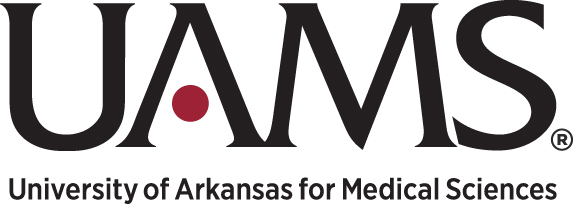Pharmacist Attracts National Media Interest in Herbal Medicine Study
For More Information: Janice Drennan 501-686-6271, University of Arkansas for Medical Sciences
Bill J. Gurley, Ph.D., associate professor and chairman of the Department of Pharmaceutics in the University of Arkansas for Medical Sciences College of Pharmacy, has found himself in the spotlight of media attention in recent months. It started when Dr. Gurley submitted an abstract of his recent study of herbal medicines containing ephedrine to the American Association of Pharmaceutical Scientists prior to its annual meeting in Boston last November. Supplements containing ephedrine are widely used, especially by students to help them stay awake to study.
"That meeting was the world's largest gathering of pharmaceutical scientists from industry, academe and federal regulatory agencies," Gurley said. "The Association included a summary of my study in its meeting press release and produced a video spot on the study."
Boston television station WCVB used the footage on its news program, and the spot was sent out by satellite and aired in Honolulu, Los Angeles, Miami, Minneapolis and other locations. Self magazine expressed interest in the topic and ran an article about the study.
When Stephanie F. Gardner, Pharm.D., a UAMS College of Pharmacy faculty member in the Department of Pharmacy Practice, noticed the national interest surrounding nutritional supplements, she became concerned about their effects on heart rate and blood pressure. Gurley's study was an outgrowth of this concern.
Ephedrine is a white, odorless, crystalline alkaloid. Its natural source is a plant called "ma-huang" (Ephedra sinica). The supplements made from ma-huang are marketed under several names, including "Herbal Ecstacy," "Energel," "Escalation," "Herbal Phen-Fen" and "Up Your Gas." Synthetic ephedrine is available in over-the-counter (OTC) drugs used to treat allergies and asthma. OTC drugs are regulated by the FDA. Herbal nutritional supplements, however, are not presently regulated by the FDA.
The danger is that too much ephedrine can cause adverse side effects and even death. "There have been 17 reported deaths and more than 800 reported incidents of serious toxicity related to overdoses," Gurley said. Ephedrine may increase blood pressure and heart rate and cause nervousness, insomnia, headache and dizziness. In high doses, it can cause strokes, heart attacks and seizures.
"The problem is that the amount of ephedrine in the nutritional supplements studied varied not only from brand to brand, but -- in at least one product -- it varied more than 130 percent from one lot to the next," Gurley said.
Drs. Gurley and Gardner have analyzed 10 herbal medicines to date. Of those, only one listed the amount of ephedrine on the bottle. Most bottles do carry the amount of the herb (ma-huang) contained in each dose, but this is no indication of the amount of ephedrine they contain. Two of the bottles listed 250 mg. of the herb, but one contained 1.08 mg. of ephedrine and the other 13.54 mg.
"The amount of ephedrine depends upon where the plants are grown," he noted. "Plants from India have different amounts than plants from China.
"With herbal medicines, people tend to think that since they are using a natural substance, taking more than the recommended dosage will still be safe," Gurley said. "But the amount of ephedrine varies from brand to brand, so a consumer who switches to a higher-dose brand but takes the same number of tablets will receive a very high dose as a result," he continued. "If used in combination with other stimulants, the effects of the ephedrine are magnified."
Another problem stems from advertising claims. These range from "feel more alert" to "improve sexual performance." Some herbal medicines containing ephedrine (such as "Herbal Phen-Fen") also claim to melt away pounds and reflect names of popular diet drugs recently banned because of adverse side effects. One brand ("Herbal Ecstacy") claims to be a substitute for the illegal street drug, "Ecstasy."
"Most drugs prescribed by physicians had their origins in natural substances," Gurley said. "But most have been synthesized chemically. Whether synthetic ephedrine is consumed as a regulated OTC product or botanical ephedrine is taken as a nutritional supplement, it is important for consumers to know how much of the drug they are ingesting. Unlike ephedrine-containing OTC products, which accurately state the amount of ephedrine contained in each dosage, the consumer has no idea how much ephedrine is contained in products made from ma-huang.
"It is recommended that no more than 25 mg. of ephedrine be consumed at one time and no more than 100 mg. should be taken within 24 hours. With some of these nutritional supplements, it is very easy for a consumer to unknowingly exceed these recommendations."
In spite of his recent celebrity, Gurley has no immediate plans to continue his studies of herbal medicines. Other UAMS College of Pharmacy researchers involved in this project were Laura M. White, Pharm.D., and Pei-Ling Wang, M.S.
###
